Overview
Key strategies for achieving direct-to-consumer (DTC) success in family-owned wineries are pivotal in today's competitive landscape. Enhancing brand narratives, optimizing distribution channels, and leveraging data analytics to understand consumer preferences are not just recommendations; they are essential practices. These strategies have been shown to significantly increase e-commerce growth and foster customer loyalty.
- Tailored marketing
- Effective logistics
These are indispensable tools for navigating the complexities of the DTC market. By implementing these approaches, wineries can position themselves for sustained success.
Introduction
Family-owned wineries are navigating a rapidly evolving landscape in direct-to-consumer (DTC) liquor sales, where innovative strategies can mean the difference between thriving and merely surviving. This article delves into seven key strategies designed to empower these vineyards, highlighting how they can enhance customer engagement, optimize logistics, and comply with complex regulations. Yet, with the potential for significant growth comes the challenge of standing out in a crowded market.
How can family-owned wineries effectively leverage their unique narratives and offerings to capture consumer attention?
Enocap: Transformative DTC Strategies for Family-Owned Wineries
is dedicated to crafting tailored strategies for DTC liquor that empower family-owned vineyards to engage directly with their consumers. By honing in on and optimizing distribution channels, Enocap helps vineyards uncover new revenue streams. Their comprehensive solutions encompass proven for DTC liquor, including and , leading to —some producers have reported an astounding 191% increase in online transactions.
Enocap's strategic approach leverages data analytics to identify consumer preferences and trends, enabling producers to adapt their offerings to meet market demands effectively. This strategic emphasis not only fuels immediate sales growth but also cultivates , a critical factor for the sustainability of within the wine sector.
Furthermore, Enocap provides to align vineyards with suitable partners and opportunities, thereby fortifying their future in a competitive landscape.
Are you ready to elevate your vineyard's growth? Schedule a complimentary 30-minute growth audit to identify opportunities uniquely tailored to your establishment's needs.
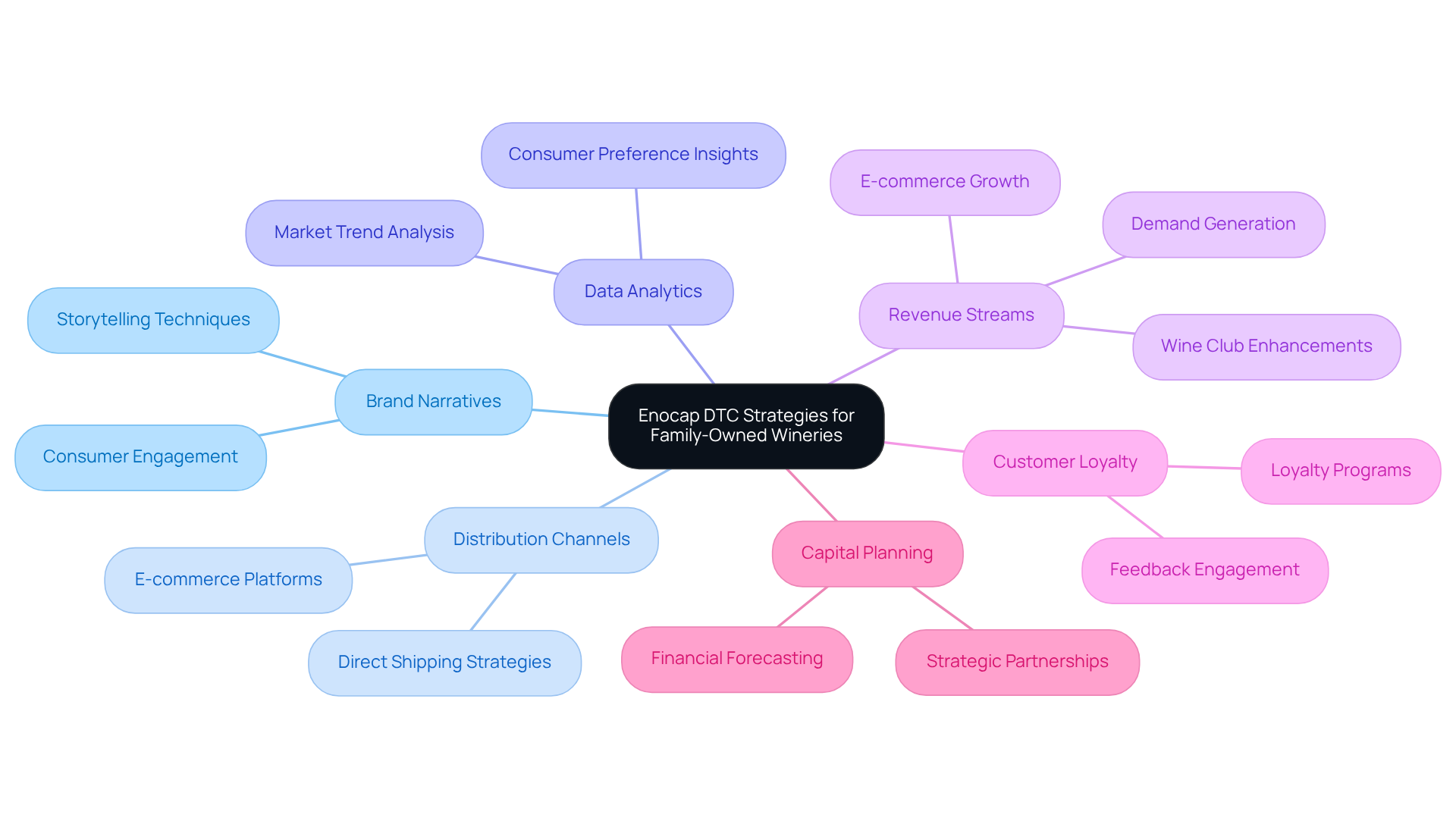
Understanding Current DTC Laws: Navigating Compliance in Liquor Sales
Navigating the intricate landscape of is not just beneficial; it is essential for striving for success in a competitive market. Each state enforces its own rules regarding the distribution and shipment of alcohol, significantly influencing how vineyards promote and deliver their products. Recently, states such as Massachusetts, Maine, and Nevada have introduced new restrictions that could impede transactions. Therefore, wineries must remain vigilant about , shipping limitations, and tax obligations related to DTC liquor to ensure compliance and avoid costly penalties.
Engaging with legal professionals or industry groups can provide invaluable insights into these regulations, enabling producers to sidestep potential traps and concentrate on enhancing their . As the matures, understanding these becomes increasingly critical for maintaining a competitive edge.
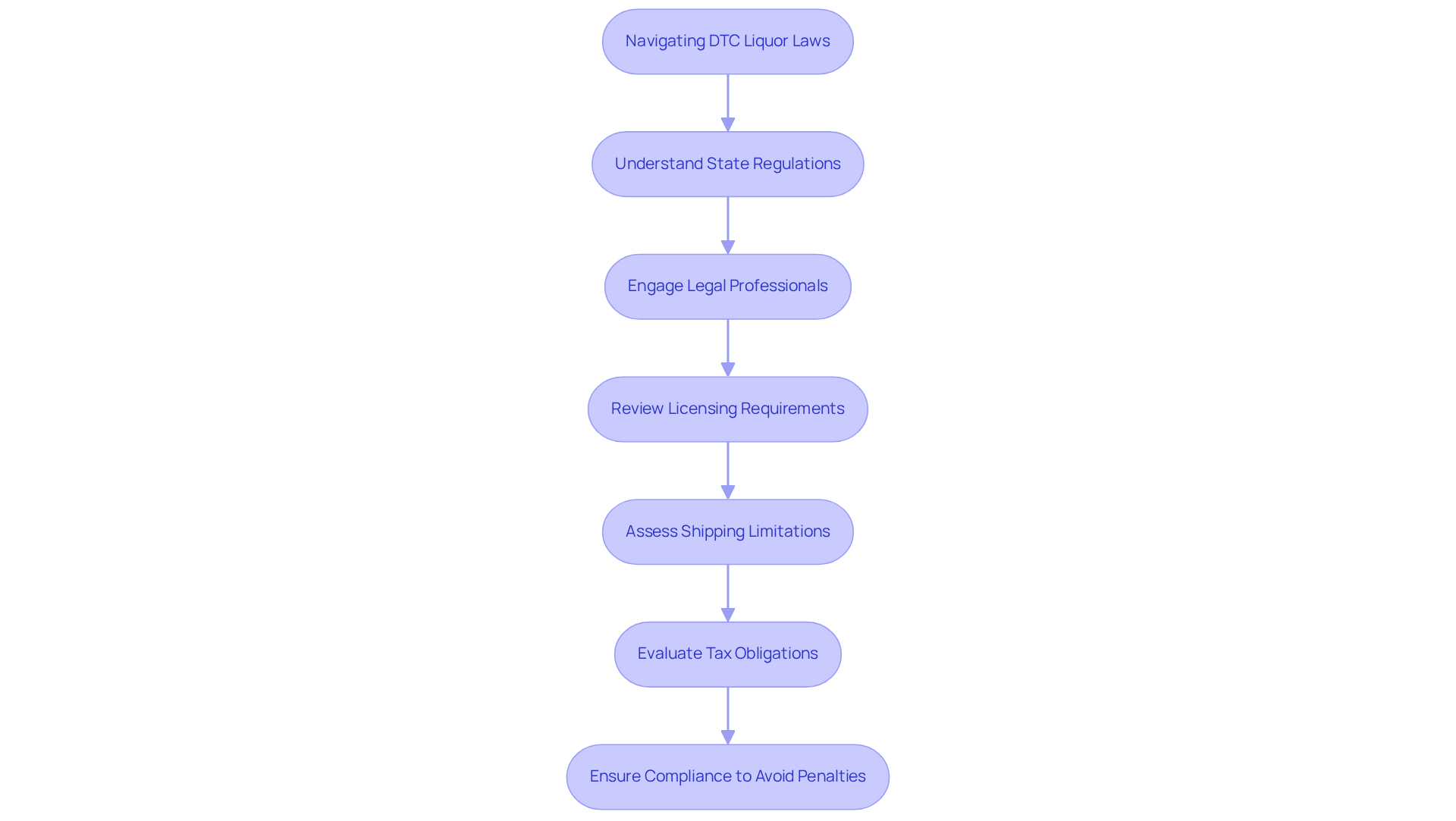
Wine: Leading the Charge in Direct-to-Consumer Sales
Wine has emerged as a frontrunner in the , evidenced by a in recent years. Family-owned wineries have adeptly harnessed e-commerce platforms to engage directly with consumers, thereby amplifying their brand visibility and fostering .
By employing —such as personalized email campaigns and targeted social media promotions—wineries can craft compelling narratives that resonate with their audience, ultimately driving and strengthening .
Remarkably, have witnessed a 153% increase in during market expansions, highlighting the efficacy of these strategies. The triumph of wine in DTC liquor transactions not only sets a benchmark for other liquor categories but also underscores the critical importance of in enhancing revenue and client retention.
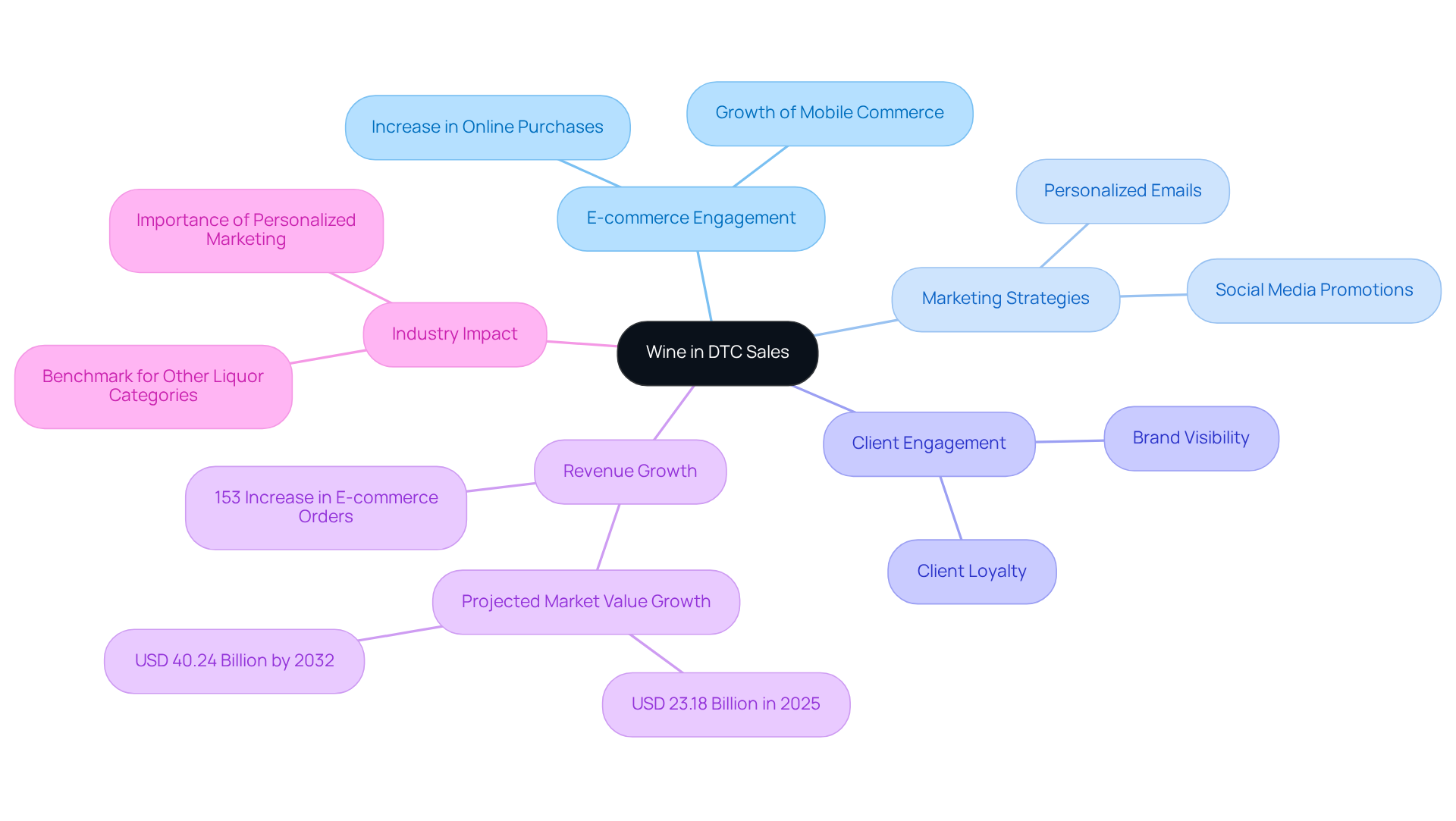
Spirits: The Emerging Frontier in DTC Liquor Sales
The spirits market is rapidly evolving, presenting a significant opportunity for DTC liquor transactions. Family-owned distilleries stand poised to capitalize on this trend by implementing akin to those employed in the wine industry. By prioritizing —crafting narratives that resonate—and engaging consumers through digital platforms, distilleries can cultivate a while unlocking .
for converting casual buyers into dedicated club members can play a pivotal role in this transformation. Moreover, offering , such as limited-edition releases or personalized bottles, enhances the customer experience and drives revenue growth. —whether for debt, equity, or acquisition opportunities—is essential, as it empowers family-owned distilleries to secure the necessary resources for sustainable growth.
As the spirits market continues its upward trajectory, family-owned distilleries have a remarkable opportunity to establish a formidable presence in the DTC liquor landscape, ensuring their legacy endures for generations to come.
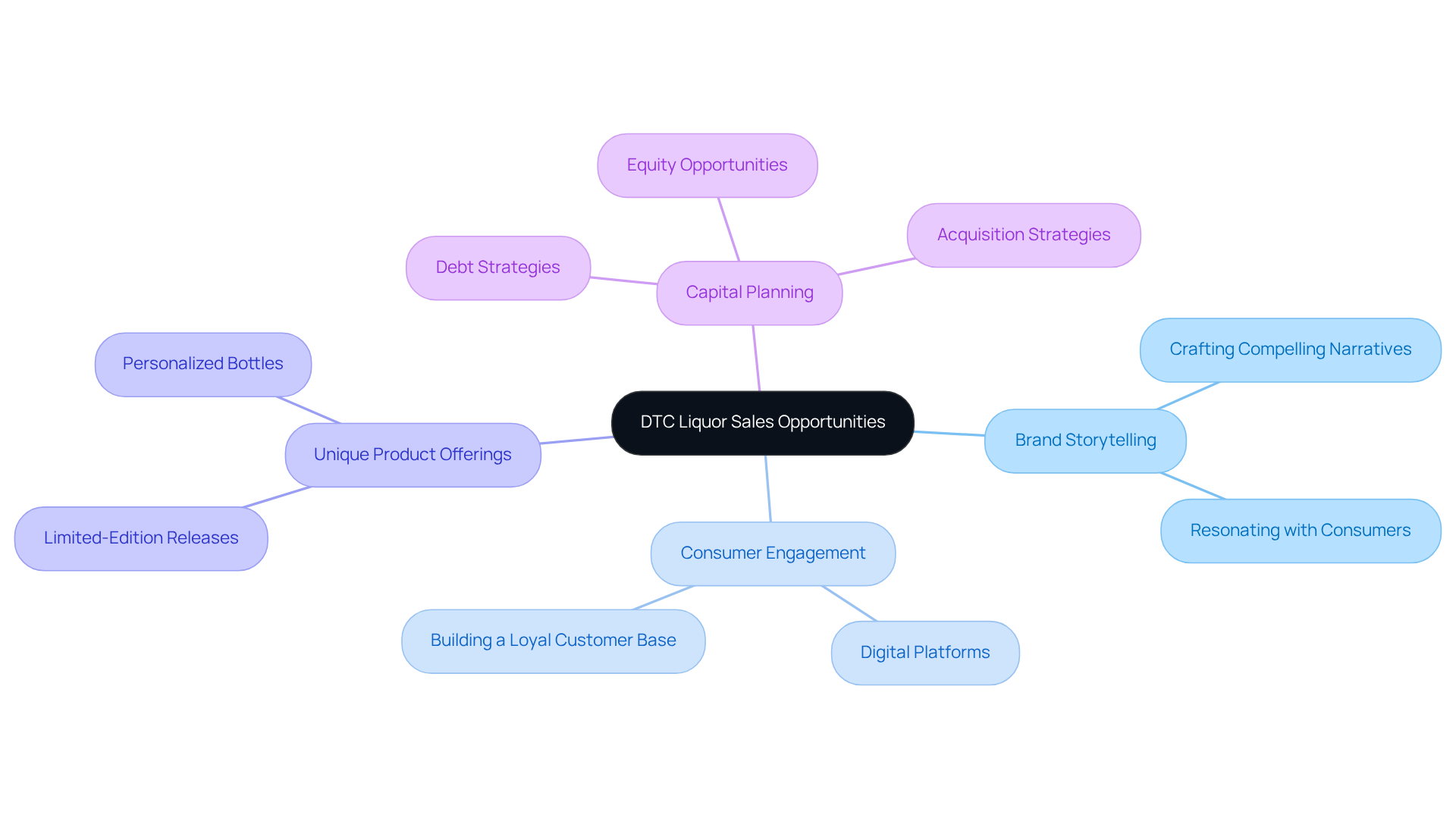
Beer: An Underserved Opportunity in DTC Liquor Sales
While there has been significant progress in transactions for wine and spirits, the beer segment presents an untapped opportunity for . By developing that prioritize and , these breweries can effectively bridge this gap. Key tactics include:
- Implementing subscription services
- Offering
- Crafting
These strategies are essential for . Furthermore, leveraging social media platforms—where 84% of consumers are more likely to purchase from brands they follow—and participating in local events can significantly enhance brand visibility and drive revenue growth.
As consumer preferences increasingly favor craft and locally produced beers, family-owned breweries are well-positioned to capitalize on this trend and thrive in the DTC landscape. It is also crucial for these breweries to , ensuring they navigate the complexities of the market successfully. A practical step for breweries is to collaborate with local influencers, thereby enhancing their reach and fostering deeper community connections.
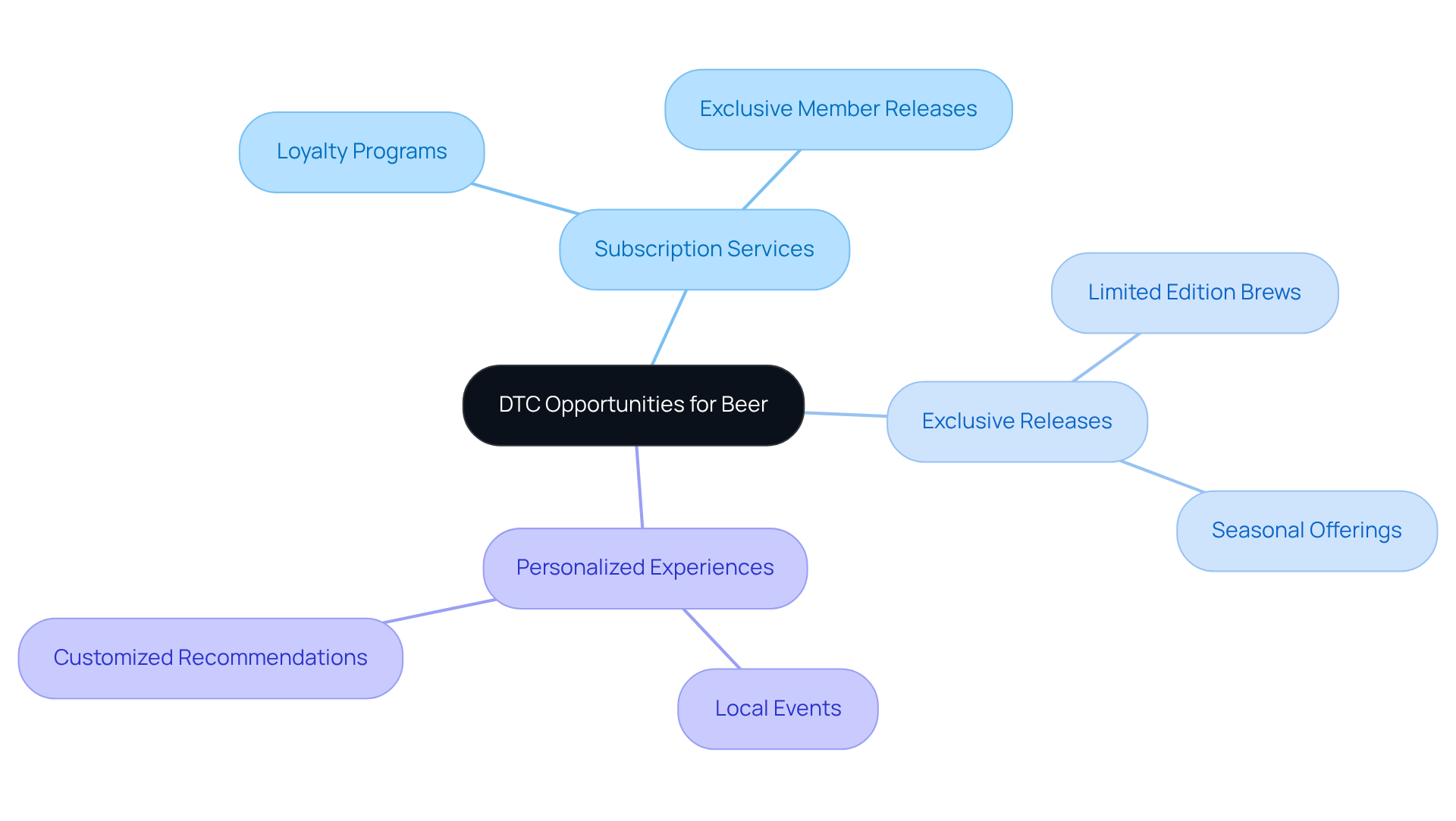
Volume Restrictions: Managing Limits in DTC Liquor Sales
for engaged in . Each state imposes specific limits on the quantity of alcohol that can be sold and shipped directly to consumers, necessitating diligent monitoring to avoid penalties. Non-compliance can lead to , with some businesses facing penalties that may reach thousands of dollars. This underscores the critical importance of adhering to .
, implementing robust is essential. Such systems empower producers to meticulously monitor transactions and shipments, ensuring compliance with state-specific volume limits while . By leveraging technology for effective inventory management, establishments can enhance operational efficiency, mitigate the risk of penalties, and maintain a in the market. Understanding and managing these volume restrictions not only protects against legal repercussions but also fosters sustainable growth in an increasingly regulated environment.
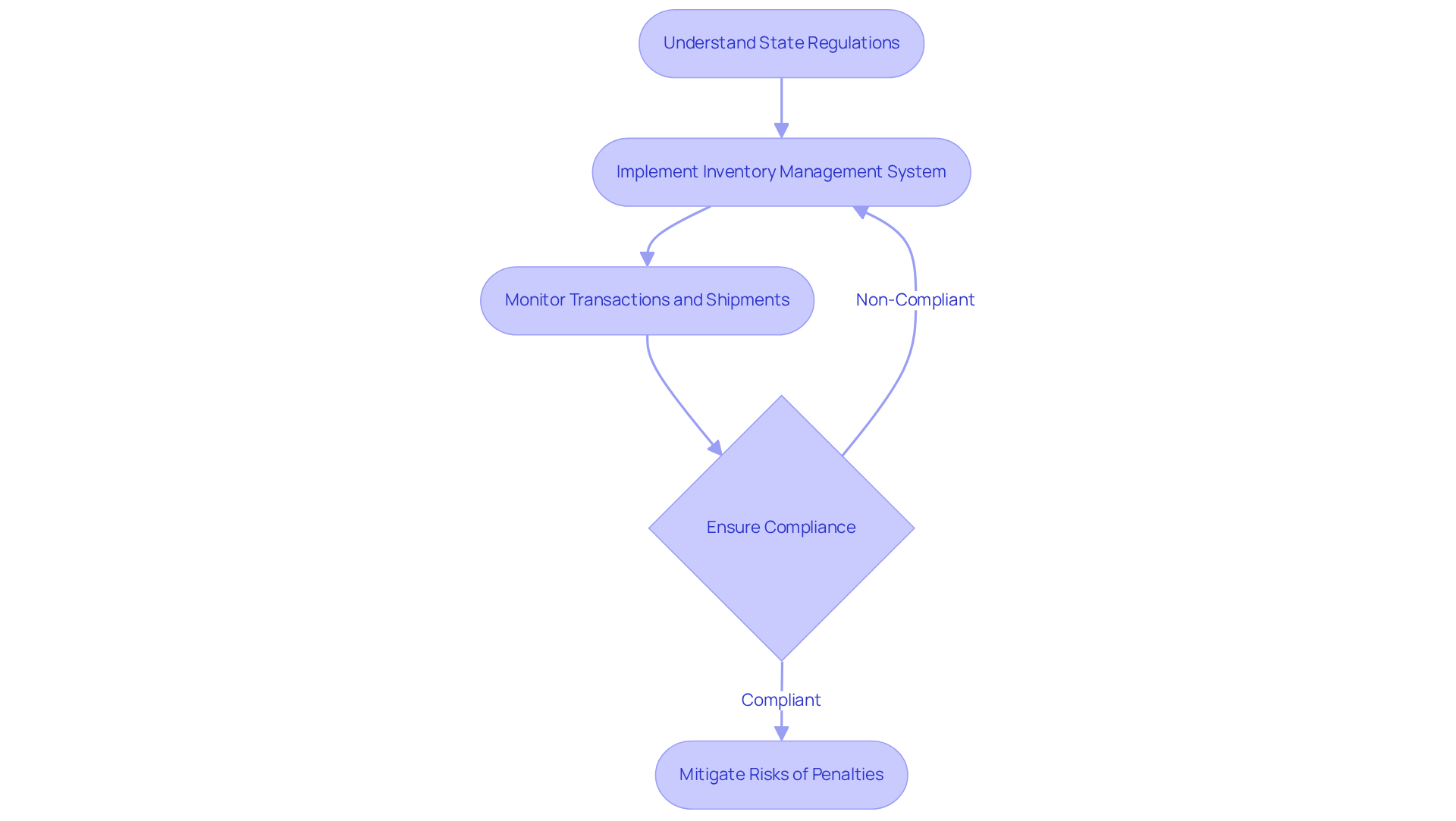
Technology as a Competitive Advantage in DTC Liquor Sales
In the digital era, technology serves as a crucial competitive edge for striving to excel in . By leveraging and sophisticated , wine producers can significantly enhance .
These systems meticulously track consumer behavior, preferences, and , facilitating the development of that resonate with their audience. Furthermore, the creation of simplifies the purchasing process, making it easier for consumers to buy directly from producers.
Embracing these empowers producers to thrive in the evolving DTC liquor landscape, ultimately driving sales growth and fostering enduring client relationships.
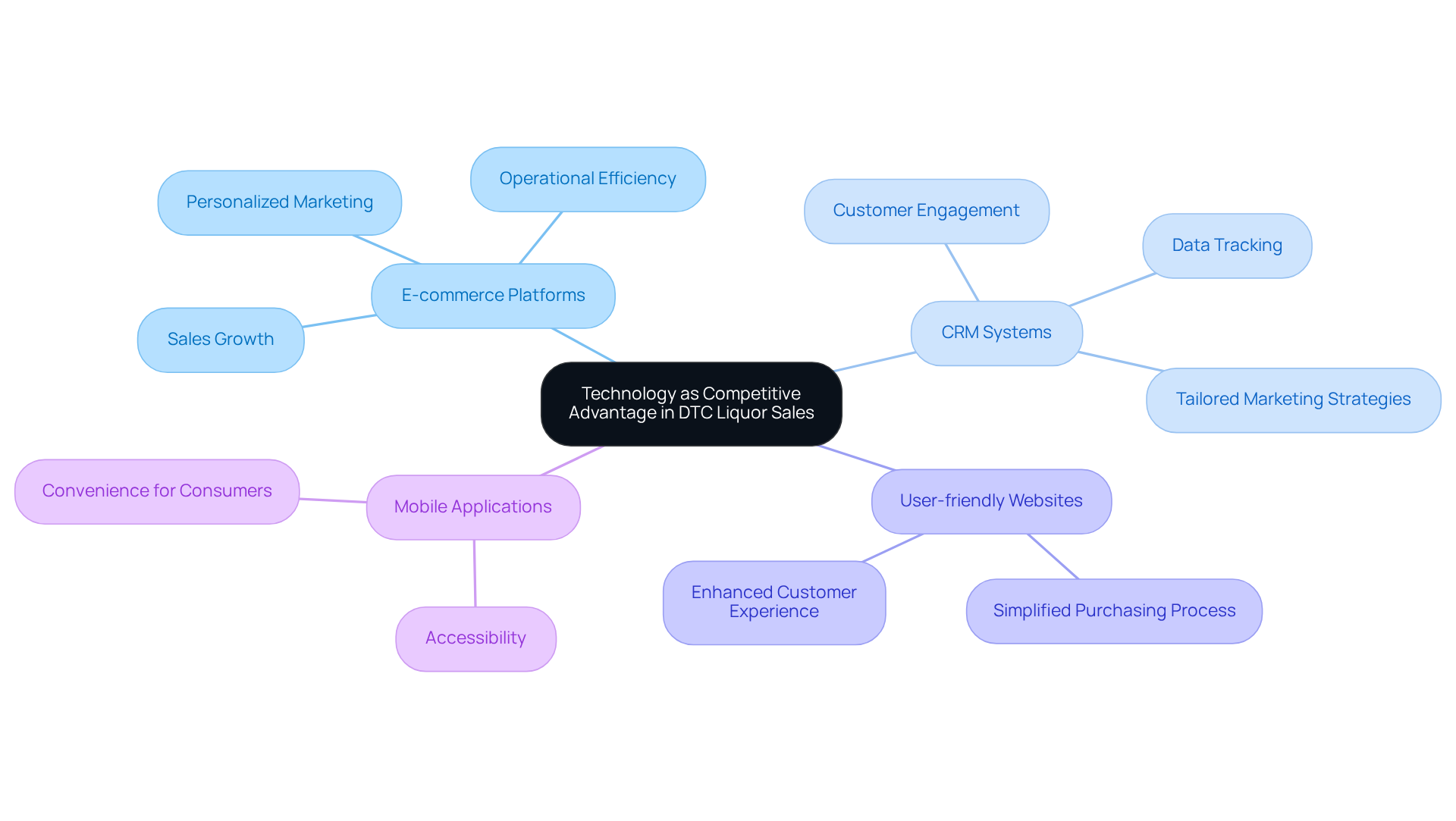
Optimizing Wine Club Memberships for Enhanced Customer Loyalty
. By offering distinct advantages such as:
- Early access to new releases
- Tailored selections
Vineyards can . can significantly bolster this approach. and personalized outreach not only but also informs them about upcoming offerings, thus enriching their overall experience.
Furthermore, leveraging allows vineyards to customize their offerings, ensuring they align with the unique needs of their clientele. A well-structured wine association can greatly enhance ; research indicates that wine clubs can contribute up to 60% of a vineyard's revenue. Notably, , underscoring the critical role of online engagement.
By focusing on these strategies and adapting to consumer trends like flexibility and customization, businesses in the wine industry can , ultimately maximizing DTC revenue and customer loyalty.
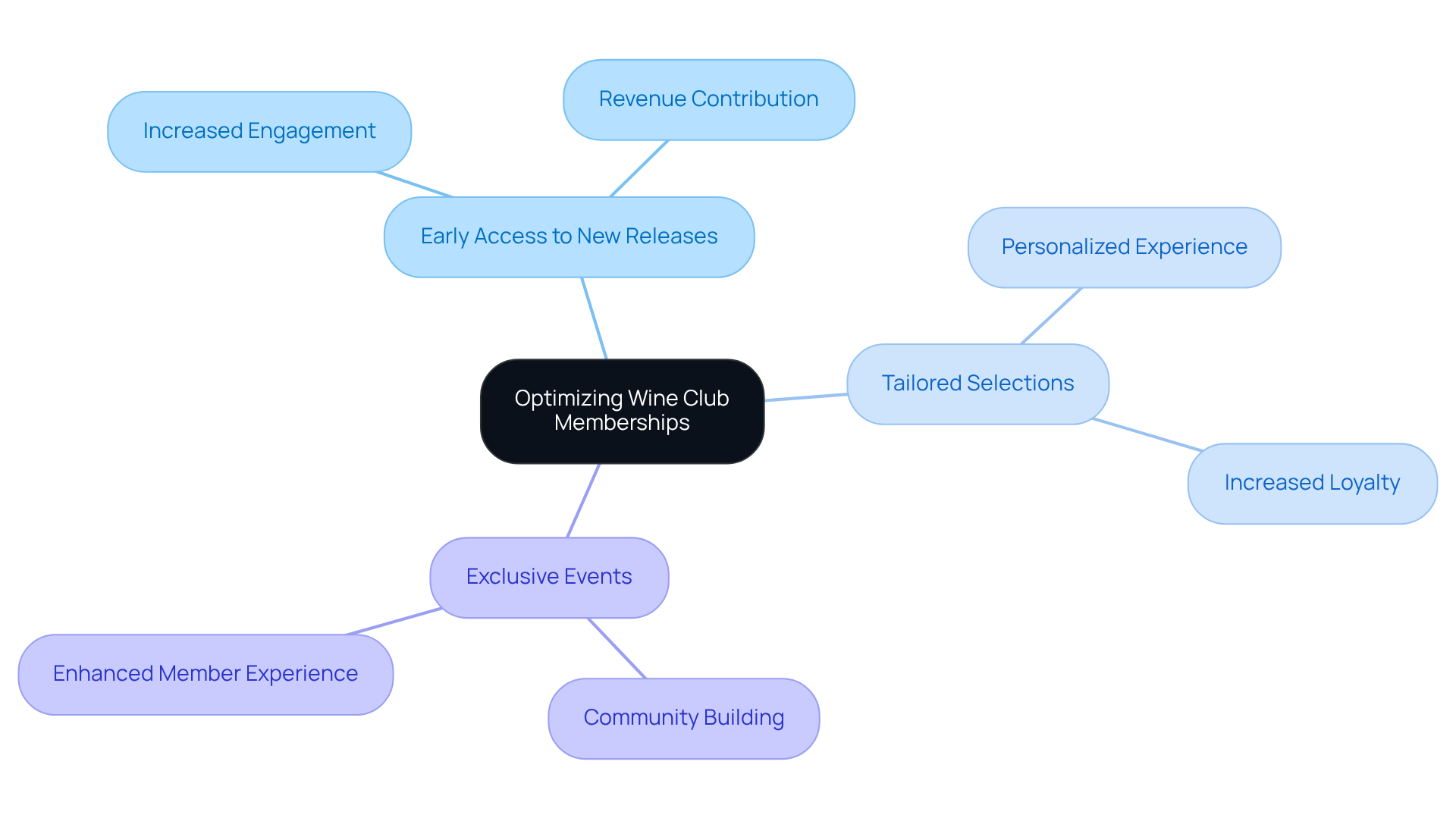
Implementing Effective Demand Generation Techniques in DTC Sales
For family-operated vineyards seeking to elevate their , the implementation of is paramount. Content marketing emerges as a formidable strategy, empowering producers to weave that highlight their unique offerings and rich heritage. not only resonates with consumers but also drives traffic to online platforms, fostering deeper connections.
is integral in reaching new audiences, with statistics revealing that 74% of consumers seek recommendations through these channels. By leveraging platforms that engage younger demographics, such as Millennials and Gen Z, vineyards can and interaction. Collaborating with influencers further amplifies this reach, as these partnerships frequently yield impressive ROI, establishing them as a vital component of a vineyard's marketing strategy.
Moreover, hosting nurtures a sense of community, encouraging participation and bolstering . Research shows that consumers attending vineyard events purchase an average of 2.5 additional bottles each year compared to those who do not. By focusing on these , vineyards can effectively attract new patrons while retaining existing ones, ultimately fostering sustainable growth in a competitive market.
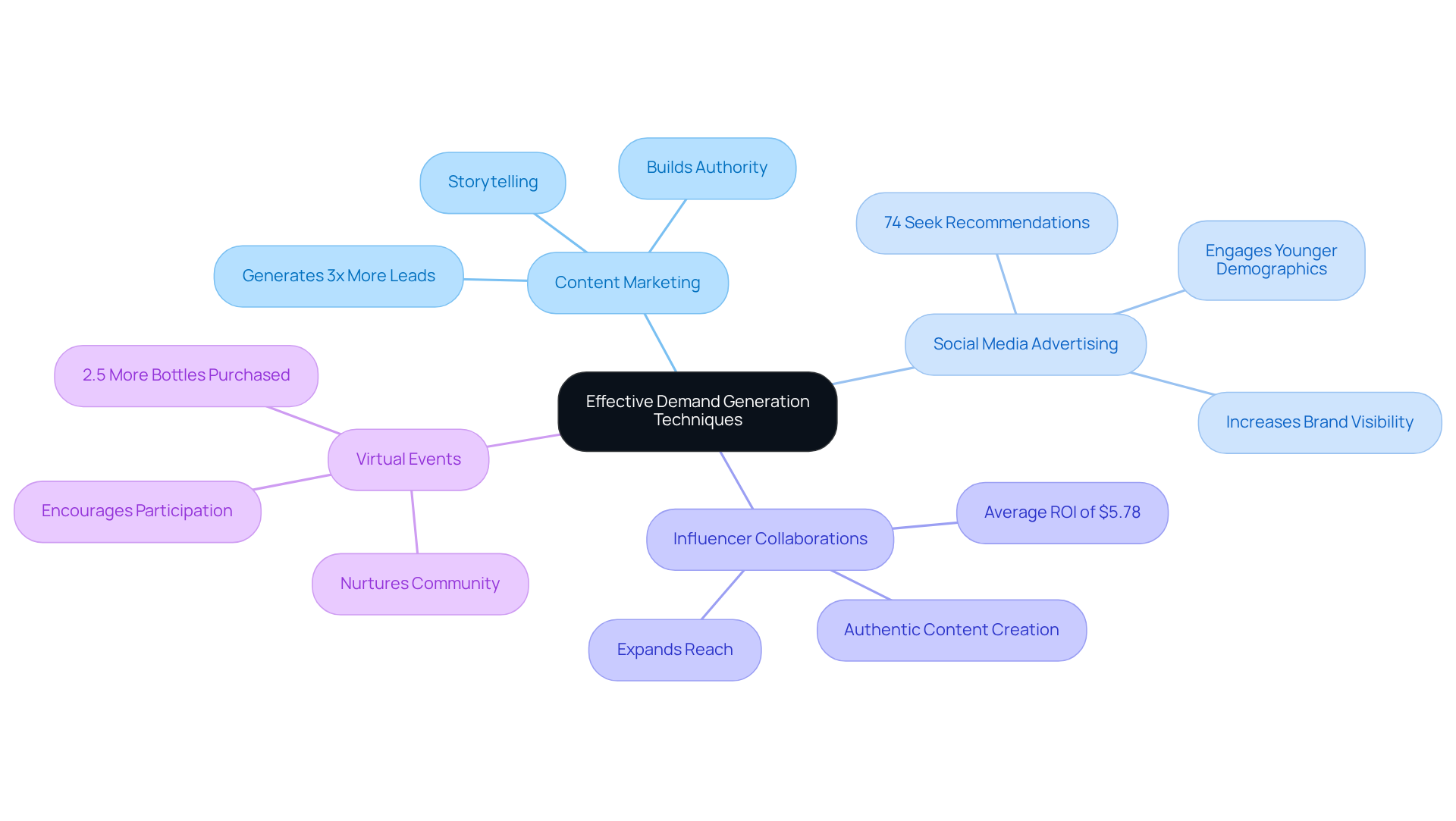
Logistics and Shipping Challenges in DTC Liquor Sales
Logistics and shipping pose considerable challenges for engaged in DTC liquor sales. of products is not just important; it is essential for maintaining client satisfaction and fostering loyalty. Wineries must adeptly navigate a myriad of shipping regulations, including age verification and state-specific restrictions, which can complicate the fulfillment process.
However, by implementing , producers can significantly streamline their logistics operations.
- Partnering with reliable logistics providers
- Investing in technology to enhance order processing
Moreover, creating and ensuring about shipping schedules and potential delays can greatly enhance the overall experience.
By addressing logistics and shipping challenges through and effective , wineries can not only improve their operations but also build lasting customer relationships.
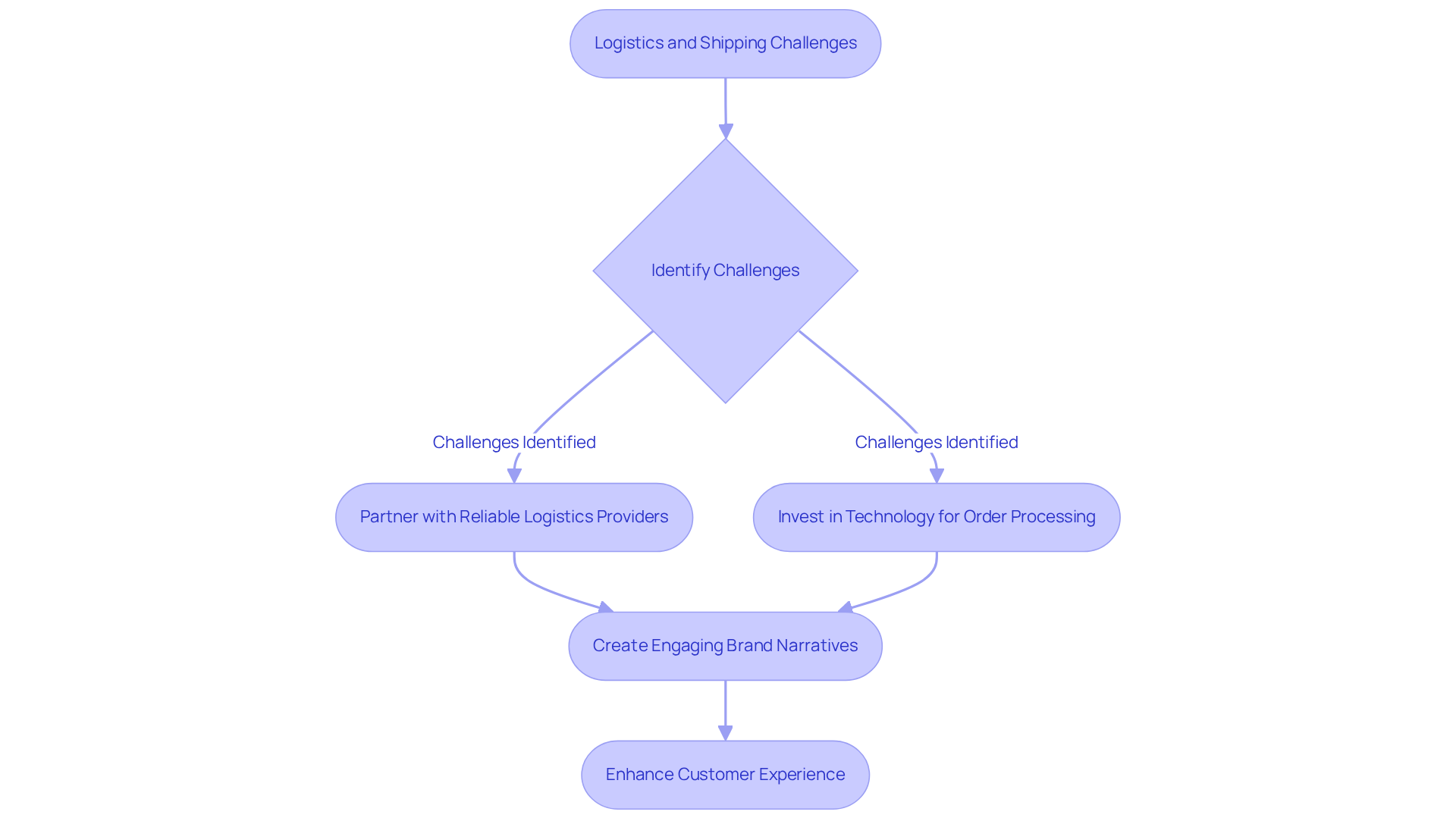
Conclusion
Enocap's transformative strategies for direct-to-consumer (DTC) liquor sales provide a compelling framework for family-owned wineries to excel in a competitive market. By prioritizing the enhancement of brand narratives, optimizing distribution channels, and leveraging data-driven insights, these wineries can substantially increase their revenue and foster long-term customer loyalty. The focus on compliance with DTC laws and effective logistics management further highlights the necessity of a comprehensive approach to navigating the complexities of the liquor industry.
Throughout this discussion, several key strategies emerge, including:
- The significance of personalized marketing
- The potential for e-commerce growth
- Innovative demand generation techniques
Family-owned wineries are urged to harness technology, engage consumers through compelling storytelling, and optimize their wine club memberships to bolster customer retention. Each tactic not only addresses current market trends but also positions these wineries for sustained success in the evolving DTC landscape.
In summary, the future of family-owned wineries in the DTC liquor market is promising, provided they adopt these strategic approaches. By embracing the opportunities afforded by e-commerce and personalized engagement, while remaining vigilant about compliance and logistics, these businesses can not only surmount existing challenges but also distinguish themselves in a crowded marketplace. The call to action is unequivocal: family-owned wineries must take proactive steps to implement these strategies, ensuring their legacy and growth for generations to come.
Frequently Asked Questions
What is Enocap and what services does it provide to family-owned wineries?
Enocap is dedicated to creating tailored direct-to-consumer (DTC) strategies for family-owned vineyards. It helps them engage directly with consumers by enhancing brand narratives and optimizing distribution channels, leading to new revenue streams and significant e-commerce growth.
How has Enocap impacted the e-commerce growth of wineries?
Enocap's strategies have resulted in substantial e-commerce growth for wineries, with some producers reporting a 191% increase in online transactions. This growth is attributed to proven DTC methodologies, including demand generation tactics and enhancements to wine clubs.
How does Enocap utilize data analytics in its approach?
Enocap leverages data analytics to identify consumer preferences and trends, enabling wineries to adapt their offerings to meet market demands effectively. This approach fosters immediate sales growth and cultivates long-term customer loyalty.
What is the importance of compliance with DTC liquor laws for family-owned vineyards?
Compliance with DTC liquor laws is essential for family-owned vineyards to succeed in a competitive market. Each state has its own rules regarding alcohol distribution and shipment, and non-compliance can lead to costly penalties.
What recent changes in DTC liquor laws should wineries be aware of?
Recent restrictions in states such as Massachusetts, Maine, and Nevada could impede DTC wine shipping transactions. Wineries must stay informed about licensing requirements, shipping limitations, and tax obligations to ensure compliance.
How can wineries navigate the complexities of DTC liquor regulations?
Wineries can engage with legal professionals or industry groups to gain insights into DTC liquor regulations, helping them avoid potential pitfalls and focus on enhancing their direct-to-consumer distribution channels.
What marketing strategies are effective for family-owned wineries in the DTC market?
Effective marketing strategies for family-owned wineries include personalized email campaigns and targeted social media promotions. These strategies help craft compelling narratives that resonate with consumers, driving revenue growth and strengthening client loyalty.
What results have Enocap's clients experienced in e-commerce order volume?
Enocap's clients have experienced a 153% increase in e-commerce order volume during market expansions, showcasing the effectiveness of their DTC strategies and personalized marketing efforts.




